For an understanding of what happens to big NGOs when they become dependent on rich donors, both private and corporate, consult the last paragraph of George Orwell's "Animal Farm": "Twelve voices were shouting in anger, and they were all alike. No question, now, what had happened to the faces of the pigs. The creatures outside looked from pig to man, and from man to pig, and from pig to man again; but already it was impossible to say which was which."
I only have space to examine the fate of one big NGO, so I've chosen a graphic, but by no means atypical, example—that of Ducks Unlimited.
First, I'll note that DU has done and does wonderful things for waterfowl and, thereby, all manner of other wildlife. Since its founding in 1937 it has conserved 14 million acres of wetland habitat. In 2017, close to 5,000 major donors and 700,000 members kicked in about $86 million.
For years I supported DU in print and financially, and I hope to do so again. I used to go to the Boston DU dinners with my neighbor, close friend and boss, Colton "Rocky" Bridges, then director of the Massachusetts Division of Fisheries and Wildlife. At the fundraising auctions (always emotional affairs and always late in the evening) drunken DUers, sometimes with tears running down their cheeks, would rise unsteadily and shout "For the ducks! For the ducks!"
Like so many good men at state game and fish agencies Rocky left and went to work for DU. He made it a better outfit. But since Rocky's departure from the organization and the planet, DU has gone AWOL on important issues and been on the wrong side of others.
Dale Hall, DU's CEO since 2010, served honorably as director of the U.S. Fish and Wildlife Service (USFWS) under George W. Bush from 2005 to 2009. He kept the service out of trouble with an anti-science administration. And when Bush's Deputy Assistant Interior Secretary, Julie MacDonald (a political hack with no knowledge of or interest in fish and wildlife) ripped apart the Endangered Species Program's scientific reports, Hall had her declawed. Shortly thereafter an Inspector General's report forced her to resign in disgrace.
But science hasn't been a Hall priority at DU. Consider his screed in the November-December 2018 issue of Ducks Unlimited magazine in which he falsely accuses Obama and former USFWS director Dan Ashe of spreading "misinformation" about and blocking the use of genetically modified crops (GMOs) and neonicotinoid pesticides, the latter so lethal to pollinators and other non-target wildlife that they've been banned by the European Union.
Hall alleges that an Obama/Ashe "order" to "halt" use of GMOs and neonicotinoids on national wildlife refuges "eliminated one of the most beneficial programs available to a refuge manager to provide food for waterfowl and other migratory birds." He closes by thanking, in capital letters, Trump's acting USFWS director, Greg Sheehan, for reversing the "order."
Dan Ashe, Jamie Clark (also a former USFWS director), and two former high-ranking USFWS officials—Ralph Morgenweck and Jon Andrew—tried to set the record straight with a letter to the editor. They noted that there was no "order" from Obama, Ashe or any other political figure, only a policy memo from a career professional—USFWS refuge chief Jim Kurth.
They further noted that there was no case for GMOs, neonicotinoids or even farming on national wildlife refuges. For the last two decades the refuge system has been phasing out farming, traditionally a political plum tossed to locals. Moist-soil management provides natural and far more nutritious food for waterfowl and other wildlife. Today only about 80,000 acres of refuge land is still farmed. But DU would have the public believe that this makes a difference amid a private sea of millions upon millions of acres planted to corn, soy and wheat.
The letter to the editor elicited no apology, no retraction and no response, just a boilerplate rejection slip for articles: "Thank you for your interest in having an article published in Ducks Unlimited magazine, but your submission is declined."
So why would DU publish such bizarre and untruthful claims and refuse to run corrections? Could it be because GMOs and neonicotinoid pesticides are produced by Monsanto, a DU donor and partner?
The Trump administration horrified wildlife advocates when it emasculated the Migratory Bird Treaty Act (MBTA) on December 22, 2017.
Every living former USFWS director with one exception, every living former USFWS migratory bird chief with no exception, and other former top USFWS officials signed a letter to then Interior Secretary Zinke expressing shock and outrage at the "new, contrived legal standard that creates a huge loophole in the MBTA, allowing companies to engage in activities that routinely kill migratory birds."
The MBTA had required British Petroleum to cough up $100 million for the North American Wetlands Conservation Fund after its Deepwater Horizon oil spill. And that got matched by another $100 million. If the spill happened today, BP wouldn't have to pay a cent thanks to the Trump administration's creative re-interpretation of the MBTA.
The only former USFWS director who refused to sign the letter was DU's Dale Hall.
As I write, Don Thomas, a medical doctor and nationally respected outdoor journalist, is working on a piece about the Trump administration's vandalism of the MBTA. In a November 2, 2018 letter to DU he wrote: "I would like to suggest that we set bygone events aside for a moment and address an issue of common concern…. Has DU taken a position on this matter? If so, I would like to report it, for the good of both DU and the ducks." As of January 2, 2019 he has received no reply.
Thomas elevated the quality of DU's magazine by contributing informative, literate pieces from 1998 to 2015, including a regular column starting in 2001.
So what of the "bygone events" that aren't?
They resulted from a piece entitled "A Rift Runs Through it" that Thomas wrote for the fall 2015 issue of Outside Bozeman, a tiny publication based in southwest Montana.
The piece criticized local property owner, James Kennedy—49th richest person in the U.S., according to Forbes—who spent what for most anyone else would have been a fortune in a lengthy crusade to kill Montana's 1985 Stream Access Law. After Kennedy bought up eight miles along the Ruby River, he barred access to anglers and the rest of the public by erecting barbed wire and electric fences across the easement between a bridge and the water. He then undertook prolonged litigation that made it all the way to the state Supreme Court before it failed.
Unfortunately for Thomas, Kennedy had been pumping huge sums into DU.
The ink was barely dry on the Outside Bozeman issue when a copy appeared at DU headquarters. DU immediately dismissed Thomas. In less than 24 hours it permanently expunged from its website all references to Thomas and all 17 years worth of his features and columns.
The liquidation called to mind how, after the long-dead Trotsky had fallen out of favor with the Soviets, he was disappeared from a painting of Kremlin Pooh-bahs. The absurdity extended to Trotsky's hat which was left hovering in ether.
Pilloried by outdoor writers, DU offered this explanation: "It's impossible to think we could have members of our own staff [Thomas was not staff] taking really nasty shots at people who are our volunteers and donors."
Shortly thereafter DU professed to have no position on Montana's Stream Access Law. But it swiftly backtracked when duck-hunting donors, who depend on that law, got their backs up.
As long-time members of the Outdoor Writers Association of America Thomas and I expected our organization to strongly condemn this assault on the First Amendment. Instead OWAA noted that the First Amendment "also allows organizations such as Ducks Unlimited [which helps fund OWAA as a "supporting" member] to choose the voices it uses to disseminate its messages" and that "OWAA plans to use the Thomas-DU disagreement as a platform to educate freelance journalists and media outlets who use their content about the nature of freelancing, including the risks and obligations freelancers and publications have toward each other."
Switch the setting from Montana to Nevada. For two decades rancher Cliven Bundy had unlawfully grazed his cattle on public land, accumulating $1 million in unpaid fines and fees. In March 2014 (on orders from "our heavenly father," as Bundy reports) he and 300 heavily armed "militiamen" confronted at gunpoint BLM agents who finally had mustered the nerve to confiscate Bundy's trespassing cattle. The agents responded by returning the cattle and leaving. Thereafter Bundy became a property-rights folk hero.
In January 2016 Bundy's son, Ammon, emboldened by BLM's retreat and the Justice Department's inaction, led a heavily armed militia in a 41-day occupation and trashing of Malheur National Wildlife Refuge in eastern Oregon. The refuge, now 293 square miles, was created in 1908 by President Theodore Roosevelt for waterfowl.
Virtually all major sporting and environmental organizations expressed outrage. But DU, an organization that exists only for waterfowl, never uttered a peep. I can't help thinking that this silence had something to do with a federal jury finding all Malheur-takeover defendants not guilty of multiple felonies.
Whenever I ask DU why it doesn't speak up on such issues it answers with its shibboleth: "singleness of purpose." Id est: For the ducks! For the ducks!
But "singleness of purpose" has never restrained DU from speaking up. Consider the public letter it signed, savaging USFWS for blocking Alaska's predator jihad on national wildlife refuges. Signing with DU were 33 other sportsmen's groups, many of which tend to worry more about the interests of their members than the interests of wildlife.
So grotesque was the massacre on lands belonging to all Americans that the Service had to shut it down. As Director Ashe, put it: "The Alaska Board of Game has unleashed a withering attack on bears and wolves that is wholly at odds with America's long tradition of ethical, sportsmanlike, fair-chase hunting. There comes a time when the U.S. Fish and Wildlife Service must stand up for the authorities and principles that underpin our work and say, 'No.'"
Previously DU had proclaimed that it "does not believe it would be constructive to … liquidate the national interest in federal land management." Yet it was perfectly okay with, indeed promoted, liquidation of that interest in Alaska.
The letter savaging the USFWS was instrumental in the Trump administration's reversal of Ashe's rule.
The 417,500-acre Izembek Refuge, mostly designated wilderness, sustains foxes, wolves, brown bears, wolverines, moose, caribou, sea otters, walruses, Stellar's sea lions, shorebirds, seabirds, five species of salmon and a rich array of waterfowl including almost all the Pacific black brant on earth. At least 50,000 people have voiced opposition to the Trump administration's plan for a wasteful, destructive and entirely unnecessary highway through the heart of the refuge. Not a peep from DU.
And not a peep from DU about the Trump administration's plan to convert the waterfowl-rich coastal plain of the Arctic National Wildlife Refuge to an industrial sacrifice area for the oil-gas industry.
If "singleness of purpose" explains DU's silence on the planned trashing of these two refuges, how is it that DU can whoop it up for toxic lead ammo? This is perhaps its more unforgiveable betrayal because no NGO better understands the dangers of lead. Lead shot has been banned for waterfowling since 1991 because it was fatally poisoning two million ducks a year.


I shall not forget the day when Dr. Mark Pokras of Tufts University's Wildlife Clinic in Grafton, Massachusetts opened a giant refrigerator and two dozen stiff bald eagles, poisoned by consuming lead bullets, tumbled out around my feet. He then showed me X-rays of scores of poisoned common loons in which lead sinkers and jigheads were plainly visible in the digestive tracts.
The Safari Club, passionate defender of toxic ammo and promoter of canned hunts, attempted to bootstrap its sagging image with a program it called "Sportsmen Against Hunger" in which members donated their venison to the poor. But after studies documented dangerous levels of fragmented lead in the venison Minnesota and North Dakota pulled it from food banks and had it destroyed.
Since there are low-cost, effective alternatives to lead ammo, one might suppose that DU would be against poisoning humans (or at least against poisoning wildlife). But when, on his first day at Interior, Zinke overturned a planned phase-out of lead ammo and sinkers on national wildlife refuges, there was DU's Dale Hall at the signing ceremony, grinning, gushing and standing proudly behind Zinke.
Hall is on his way out, but my read is that DU's deficiencies are nine parts systemic and one part Hall. Judging from Hall's decent performance at USFWS, I believe the climate at DU turned him.
Can DU regain the high ground it occupied when Rocky Bridges and I were members and supporters? I hope so. And I'd like to think so.
We hate to ask, but ...
Hatch Magazine's independent conservation journalism depends on the support of readers like you. Please consider becoming a Hatch Magazine sustaining member by making a small monthly or one time donation. Your contribution will help fund more of the in-depth coverage you've come to trust.









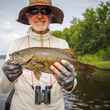
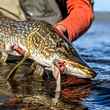
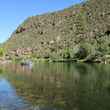
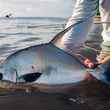

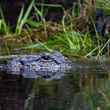


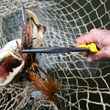







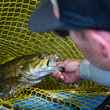



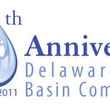
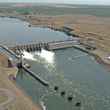
Comments
Jbird replied on Permalink
*begins slow clap* Wow, excellent article Mr. Williams and Hatch Mag
Anonymous replied on Permalink
Great if not incredibly sad article. The name Dale Hall appeared in the news here in B.C. in Aug. 2018, and this article reminded me of pitfalls that following the money can bring. Appears he has recently been involved in embarassing and illegal fishing activities in B.C., going so far as to justify these activities by means of mistruths and his being above the law. Link to article: http://steelheadvoices.com/?p=1203
Luke replied on Permalink
This article was both a compelling read and extremely informative about judging organizations for their motives and not the facade they present to the public. Thank you for the research done.
Jock Conyngham replied on Permalink
Thank you, Ted.
Scott Stouder replied on Permalink
Great piece Ted!!
Ken M Blomberg replied on Permalink
Ironically, I received a DU membership application in the mail today. I was tempted by the free DU winter jacket, but decided no thanks. After reading this, I threw away the free return address labels too.
RLM replied on Permalink
I'm interested on what you think of Delta Waterfowl as an alternative to DU?
Chase replied on Permalink
I was right there in your corner giving an encouraging pat on the back with each point. Then I read “predator jihad” and stepped back for a second. You wrote a great piece, except going against a state’s right to manage their wildlife. Minor disagreement aside, I very much enjoyed reading your thoughts on this, Mr. Williams.
RLM replied on Permalink
Mr Williams
What are you thoughts on Delta Waterfowl?
Regards
RLM
Edward F Williams replied on Permalink
Sorry, I know zip about Delta Waterfowl.
Best,
Ted
Karl J. replied on Permalink
Nice work Ted. It was time to bring these issues to light. I too have pulled back, similarly to the time when RMEF boo-boo’d on the Roadless Rule. Hopefully politics will become a less important piece of the N.A. Model of Conservation.
Christian Mrosko replied on Permalink
I've always appreciated Ted Williams writing and perspectives, such an important voice. The influence of big money and greed is destroying our natural world and many of the organizations that traditionally defended it. It's way past time that people wake up, pay attention and act. Among traditional conservation groups it's not just DU that are fast becoming political pawns for the rich and powerful. Be vigilant and active as our wonderful world depends on it.
RLD replied on Permalink
Very easy to cherry-pick issues to grind your axes on, Mr. Williams. Mocking volunteers that give of their time and resources in support of conservation. Outrageous and extremely unprofessional!
Mark K replied on Permalink
did we read the sam articel?
Anonymous replied on Permalink
Noting better to do but trash each other's Sportsmen's Conservation Organizations? Does us no good. Makes us all weaker.
Name a single organization that's done more for Duck and Goose hunters than Ducks Unlimited.
This author as well benefits from the very wetlands Ducks Unlimited provides.
The author fishes in the waters Ducks Unlimited has protected and provides for him. Kind of biting the hand that feeds him, for that matter.
Not every decision made will please everyone. But doing nothing pleases no one.
Noting better to do but belittles someone's else's hard work because it's a slow day at the office?
Kyle J Green replied on Permalink
Dale Hall was a fantastic leader for Ducks Unlimited, that has headed some of the organization's greatest growth. Not sure where he got his "facts".
Obviously not from the financial bottom dollar line of lists of accomplishments and current projects underway across the entire continent Ducks Unlimited is doing.
Projects all fishermen benefit from by protecting wetlands that provide your fish nurseries. Kind of biting the hand that feeds you.
While the author at Hatch magazine was complaining, Ducks Unlimited was doing.
Paul Doscher replied on Permalink
Thanks Ted, for calling out DU for it’s unwillingness to stay true to mission in the face of political and donor influence. This is a risk that any large NGO faces, and fortunately most conservation NGOs don’t fall victim to this problem.
Edward F Williams replied on Permalink
In the Jan.-Feb. 2019 issue of Ducks Unlimited magazine I was disappointed but not surprised to see the once-honorable organization whoring again for the anti-environmental, anti-wildlife Trump administration. In his Insights column CEO Dale Hall gushes and oozes about Trump’s alleged commitment to no-net loss of wetlands. This is, of course, a lie. Trump has emasculated the Clean Water Act, placing millions of wetland acres at risk. Trump has directed the EPA to rule that, while navigable water should be protected, it’s perfectly okay to foul them via tributary. This make as much sense as running the locker-room shower drains into a public swimming pool. Predictably, DU hasn’t uttered a peep about this vandalism of waterfowl habitat.
Anonymous replied on Permalink
Ted always speaks truth to power and says what needs to be said. I don’t know why our country is backsliding at such a breakneck pace but I know Teddy Roosevelt is spinning in his grave. I’m glad that people like Ted are fighting the good fight.
Ace Luciano replied on Permalink
As a fellow independent and freelance journalist, I appreciated a couple of the points that were made.
That’s about all.
You are correct about NGO’s. Like all organizations of this nature as well as our own government, as people rise to positions of power, they tend to become corrupted. I watched it happen in several organizations, and, unfortunately, I have come to realize it is the bitter pill we must take with the sweet if we expect anything to get done.
While I have my own, legitimate views and differences with Safari club international, they do a great deal of good things and still have a great deal of very good and honest people to offset the corrupt and power hungry that protect hunters and hunting worldwide. It is for that reason that I have not used my journalistic power, as you have, to attempt to Hijack their position or knock them down a peg. As it became glaringly apparent that you fall into the anti-anything side of the equation and had a clear agenda, you lost me.
Predators, like all wildlife, also benefit most from scientific management. One of the best and most glaring examples of this is the overpopulation of wolves in and around Yellowstone park. Second to that is the growth and expansion of the population of grizzly bears in the upper rocky mountain range. Science dictates that we manage those populations not only for their benefit but for the benefit of their prey species, farmers, and, yes, to enhance opportunity and revenue to the states from hunting of both predators and prey.
Your credibility was further deteriorated when you mentioned your membership and fellow memberships of those in the outdoor writers Association of America. The entire existence of the Professional Outdoor Media Association was because of the anti-hunting, anti-gun, and anti-sustained use positions that 0WAA has taken both then and now.
As a journalist of integrity and a believer in freedom for all, I would never give my dollars to such a group.
Their most recent “open letter” regarding cosmetic differences in firearms and their agreement with the banning of those firearms based on appearance only was certainly enough to reinforce my beliefs.
Ducks Unlimited had every right to remove anyone they see fit from their position or office whether we agree or not.
When you take the step in the rating or degrading a member or, certainly, a major donor, you accept the risk of consequences.
Do I agree with everything that Ducks Unlimited does?
No.
Do I believe that the good things that they do grossly outweigh any negatives that might come along with it?
Absolutely.
DeschutesRedside replied on Permalink
Good read, and good job holding DU accountable for it's drift away from conservation and towards being just another paid PR outfit for corporate funders. To the DU members rushing to defend them... sorry the truth hurts, but rather than attacking the messenger you might want to take it up with the DU Board of Directors. Doing what's right for the birds, wetlands, and future generations should take priority over raking in cash from agribusiness, or standing with anti-wildlife politicians for photo-ops.
Bob Heine replied on Permalink
Ted Williams article on DU is achingly honest. You can also note that Trout Unlimited’s non stance against hatchery trout and the damage they cause is equally disingenuous.
C B replied on Permalink
Generally a good piece with some well atlrticulated facts. However many of us would prefer a more political neutral tone. Im interested in facts that tell a informative story, not journalist political opinions.
Steve replied on Permalink
As a great admirer of Ted William's work, I am sorry to say this article was a surprise and a disappointment. While one can always find fault with the specific decisions (or non-decisions) of a major conservation organization, and the bigger they are the more easily their record can be nitpicked, this article really misses the forest for the trees. And it is particularly unfair to Dale Hall, who is soon ending a spectacularly successful run as Ducks Unlimited's CEO.
Over my career, much of which has been spent in the field of conservation philanthropy, I've had the privilege of working with or closely observing almost every major NGO in North America, as well as many international organizations. And I've been supporting and collaborating with Ducks Unlimited for almost 20 years, for these reasons: what I've learned, and what this piece fails to discuss, is that Ducks Unlimited is almost certainly the most effective, efficient and focused of the bunch.
DU's track record of protecting and restoring wetlands and associated upland habitat is unmatched. Their vast volunteer network engages and empowers hundreds of thousands of people. Their prodigious fundraising efforts permit them to buy expensive private lands where necessary (and most of the money they raise goes right to projects, not overhead). Their policy experts engage in public lands management if that's what's needed. And they are honestly and truly focused on sound science. They get all the big stuff right.
Would any of us have made different choices than DU's on the issues discussed here? Probably. But DU is not the Sierra Club. And it is not the National Rifle Association. It tries to straddle the shrinking center of public debates and stick to the issues most important to its mission and membership. I personally admire that effort, even as it becomes harder and harder within our polarized, toxic public discourse. In fact, it seems the underlying premise of the piece is that if you're not on "our" side on all these issues, you must be on "their" side. All Americans need to resist that kind of false dichotomy, now more than ever.
Finally, I have to object to the harsh, personalized focus on Dale Hall. When you're the CEO, the buck stops with you, but we all know that a CEO doesn't have unlimited or unfettered authority. In those roles you do the best you can under the limitations and circumstances you can't control. Dale was a terrific head of the USFWS, as noted here. And he is as honest, dedicated, capable and successful as anyone who has led DU. We should acknowledge that we were incredibly fortunate to benefit from Dale's service and we should wish him well in whatever he chooses to do next, not besmirch his impressive overall record based on a few minor points of disagreement. Anyone who follows in his footsteps, and perhaps the lobbying and jockeying has already begun, will have a very high bar to meet.
So, by all means let's continue to press DU on the issues where they can lend their power and influence (like phasing out lead shot), but please don't lose sight of how good they are and how great Dale has been. That's the big picture and the story that still needs to be told.
Joshua Goins replied on Permalink
Very good article Mr Ted. It was great speaking with you on the issues at hand. I was a proud supporter, sponsor, and committee member of both delta and DU at one time.
I started researching the short stopping issue 8yrs ago and found some very interested evidence. Both organizations are not in it for the common hunter any longer.
Ducks unlimited and Delta waterfowl have forgotten their roots and are going against the very foundations they were built upon. Not saying never did good work or they dont continue to do good.
The majority of the work completed by both organizations, is very money driven and does not benefit the very people who have supported and built them throughout the years.
The habitat work completed only benefits a select few up and down the flyway
If you would like to know more on this issue and the manipulation of the law please visit,
FlywayFederationUSA.com or visit us on facebook at Flyway Federation group page.
Please give us a like on the Flyway Federation page as well.
Thanks for reading and Thank you Mr Ted!
Dave Zeug replied on Permalink
Granted, DU has done much for our waterfowl, but at what price? Thank you Don/Ted for exposing the pitfalls when wealthy donors become the driving force in NGO's internal operations. If we don't keep their toes to the fire, the North American Wildlife Management Plan/access to PUBLIC land will just continue it's downward cycle. My DU membership request will continue to be recycled.
Anne Duncan replied on Permalink
Ted Williams' story is disturbing, but I found certain comments above to be disturbing also. I understand what it means to have deep loyalty to a conservation organization. There are a certain few organizations that I have valued and supported as generously as I can for decades.
But if those organizations ever go sliding off the rails to the extent that DU has, they will get little if any of my conservation donation money in future. And they will hear my strong concerns, not rationalizations about how they really are pretty much mostly still okay. It would be painful to lose my connection to my favorite few groups, but there are many other conservation groups, state, local, and national, that are staying true to their missions and not doing dubious photo ops with blatantly anti-conservation elected officials.
The cause of reducing lead threats to wildlife used to be fundamental to DU. I say that as someone who worked many hours as a volunteer activist on the lead-in-wetlands issue in my state, along with DU, decades ago. The recent betrayal of that cause by DU is shocking.
Now I'm wondering which other NGOs are sliding down dark-side slopes without the public knowing. Please, Ted Williams, keep writing.
Pages